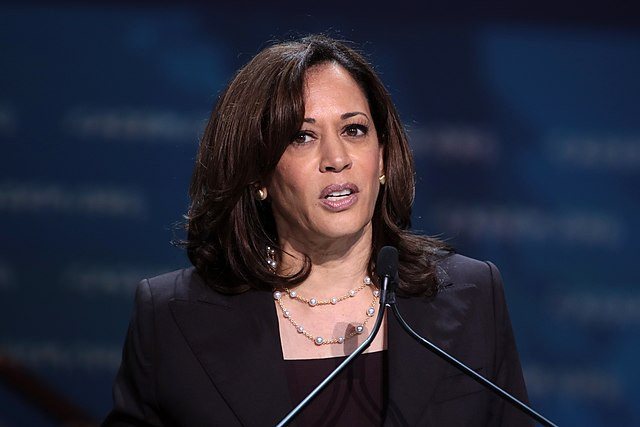Vice President Kamala Harris has named Iran as the United States' greatest adversary, diverging from the long-held position that China poses the most significant threat to American interests. In a recent interview on CBS's "60 Minutes," Harris emphasized the urgency of countering Iran, citing the nation's involvement in recent attacks against Israel and its pursuit of nuclear capabilities.
"Iran has American blood on their hands," Harris declared during the interview, referring to Tehran's missile attack on Israel last week that involved the launch of approximately 200 ballistic missiles. She highlighted that preventing Iran from becoming a nuclear power is a top priority for her administration. However, when asked whether she would support deploying U.S. troops if Iran developed nuclear weapons, Harris refrained from answering directly, stating she would not discuss "hypotheticals at this moment."
Harris's comments mark a notable shift from the Pentagon's established stance, which for years has designated China as the United States' most significant threat. Since 2018, both the Trump and Biden administrations have maintained that Beijing's growing military capabilities, economic influence, and global strategic ambitions make it America's most formidable geopolitical competitor. The U.S. National Security Strategy continues to list China as the top threat, followed by Iran, Russia, and North Korea.
This repositioning of Iran as the primary adversary has sparked a swift response from political figures, particularly among Republicans. Senator JD Vance, the Republican vice presidential candidate, sharply criticized Harris for her comments during a rally in Michigan. "China is the biggest threat confronting this country," Vance argued, accusing Harris of being too willing to engage in conflicts around the globe while downplaying the strategic competition with China.
The context behind Harris's focus on Iran lies in the escalating violence in the Middle East, which has reignited U.S. concerns over Tehran's influence in the region. Iran's recent missile strikes on Israeli positions came after the killing of senior figures from Hamas and Hezbollah, an act widely believed to have been orchestrated by Israel. This development has once again brought the Middle East into sharp focus for the U.S., pushing the Biden administration to reconsider its priorities in dealing with Iran.
Despite her emphasis on Iran, Harris did acknowledge China's strategic challenge when asked directly about it. "First of all, we must win the competition for the 21st century with China; we must be able to compete and win," she said, stressing the importance of protecting American business interests and maintaining open communication lines with Beijing. Harris also avoided a direct answer regarding U.S. military intervention if China were to invade Taiwan, reiterating a commitment to the "One China" policy while supporting Taiwan's right to self-defense.
The Vice President's remarks have stirred debate about the future of U.S. foreign policy. Critics argue that her focus on Iran overlooks the broader strategic challenge posed by China, which has been classified as a "pacing challenge" by the Pentagon, indicating a long-term risk to U.S. global dominance. In contrast, some analysts believe that Harris's emphasis on Iran reflects the immediate threats posed by Tehran's actions in the volatile Middle East region, especially amid the ongoing conflict in Gaza and Iran's alliance with militant groups.
Iran has long denied ambitions to develop nuclear weapons, yet its nuclear program remains a contentious issue in international relations. In 2018, former President Donald Trump withdrew the U.S. from the Iran nuclear deal, which had aimed to limit Tehran's nuclear activities in exchange for the lifting of economic sanctions. Since then, efforts by the Biden administration to revive the deal through indirect negotiations have failed, and tensions between the two nations have escalated, with new sanctions imposed on Iranian entities.
In her interview, Harris strongly condemned Iran's missile launches against Israel, describing the attacks as further evidence of Iran's destabilizing influence in the region. "I am clear-eyed: Iran is a destabilizing, dangerous force in the Middle East, and today's attack on Israel only further demonstrates that fact," she said. The Vice President reaffirmed her commitment to continuing U.S. support for Israel, despite criticisms over Israel's actions in Gaza and Lebanon.
The Biden administration's focus on Iran comes at a time when the U.S. is also deeply engaged in countering Russian aggression in Ukraine, providing military and financial assistance to Kyiv in its fight against Moscow's invasion. The U.S. has maintained a dual-track approach, addressing threats from multiple fronts, including Russia's geopolitical maneuvers and China's rising influence in global affairs.






